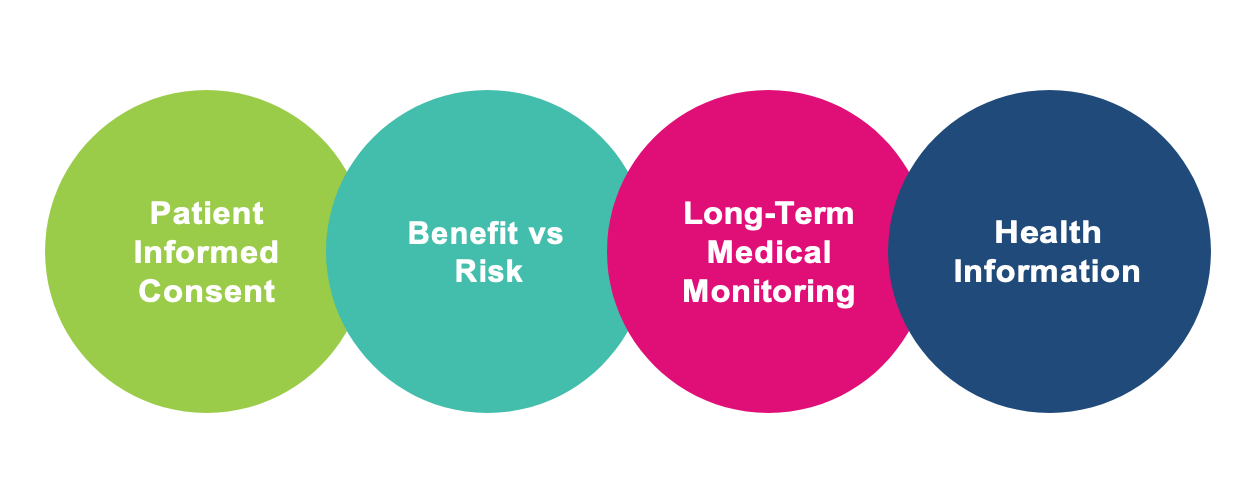Developing a bioethical framework for genomic medicine
A framework for the ethical use and application of genomic medicine is essential to realize the full potential of this new field of medicine for patients.

Genomic medicines have the potential to replace today’s symptomatic treatments with tomorrow’s cures, and even to develop therapies for diseases where no effective treatment exists today.
Sangamo and others continue to advance this exciting new field of medicine, but we need more than scientific breakthroughs to realize genomic medicine’s full lifesaving and life-changing potential.
Our existing health care system wasn’t built with this new field of medicine in mind. As such, some aspects of the system need to evolve and others need to be created. Chief among these is a robust bioethical framework to guide the use and application of genomic medicine.
If we don’t address these bioethical issues, recognizing that every step of the patient journey (from diagnosis through to follow up) differs from traditional treatments, we risk future challenges with clinical trial participation, long-term data collection, commercial pathways, access systems, or other challenges that could hinder patients from receiving genomic medicines. Now is the time to begin crafting a bioethical framework which will steer the important work for years to come.
I invite you to download Sangamo’s whitepaper and learn more about our commitment to the ethical progression of genomic medicine.
Introduction
Since our founding in 1995, Sangamo Therapeutics has pioneered the field of genomic medicine. We develop product candidates using a range of cellular and genomic engineering approaches that allows us to connect the underlying biology of the disease to the appropriate technology to create life-saving products for patients. Sangamo’s R&D approach is aligned with the:
- Alliance for Regenerative Medicine (ARM) Therapeutic Developers’ Statement of Principles the ethical use of gene editing and genetic modification, including the investigation of therapeutic applications of somatic cell gene editing.
- World Health Organization’s Human Genome Editing Recommendations developed by the WHO Expert Advisory Committee on Developing Global Standards for Governance and Oversight of Human Genome Editing, to examine the scientific, ethical, social and legal challenges associated with human genome editing.
We believe there are four areas of insight where we can make progress toward developing the transparent systems needed to enable genomic medicine to fulfill its full promise to patients:

Area of Insight:
Patient Informed Consent
As with any medical treatment, participation in a clinical trial offers potential benefits and risks. To help a clinical trial volunteer make an informed decision, the clinical study team is required to disclose all known risks, benefits, and available alternative health care options. This is called informed consent and is an ongoing, interactive discussion to help patients make informed decisions about whether to begin or continue to participate in a clinical trial.
Learn MoreArea of Insight:
Benefit vs. Risk
Today’s genomic medicine patients are pioneers – the first to receive these treatments designed to create long-lasting or life-long effects. By definition, medical science doesn’t have data on the lasting or life-long effects because no patient has lived a lifetime (yet) after receiving genomic therapy.
Learn MoreArea of Insight:
Long-Term Medical Monitoring
Patients who receive traditional prescription medicine are monitored by a physician for as long as they take the medicine. If or when a treatment course ends and a patient stops taking the medicine, it is no longer necessary for their physician to monitor the impact on the patient. By contrast, the treatment period for genomic medicine is very short. A patient may receive just one gene therapy treatment, but the effects are expected to last in the body for years. For this reason, genomic medicine needs to be monitored for a longer period.
Learn MoreArea of Insight:
Health Information
Genomic medicines have life-changing potential for those facing serious or rare illnesses and are among the fastest growing areas of research. Perhaps the two most important parts of a bioethical framework are ensuring patients can access these innovative therapies, and as appropriate, support a patient’s access to individual health information.
Learn MoreGenomic medicine won’t reach its potential in one huge leap. The science advances step by significant step. Progress is rapid but in the context of medical history, we’re still in the early days of genomic medicine. We’re building Sangamo to last so that our unique platform and deep expertise can drive genomic medicine advances for years to come and, most importantly, play our part in ensuring genomic medicine delivers on the promise it holds for patients.
We in the industry must take the lead – starting conversations, raising issues, and asking hard questions. We must collaborate among ourselves and through organizations like Alliance for Regenerative Medicine and Biotechnology Innovation Organization (BIO) to develop solutions and pioneer change.
Sangamo leadership is proud to be on the forefront of these discussions as part of the Alliance For Regenerative Medicine’s Gene Editing Task Force and the BIO Cell and Gene Therapy Committee.
For a more detailed discussion about the need for a genomic medicine bioethical framework, please download Sangamo’s full white paper.